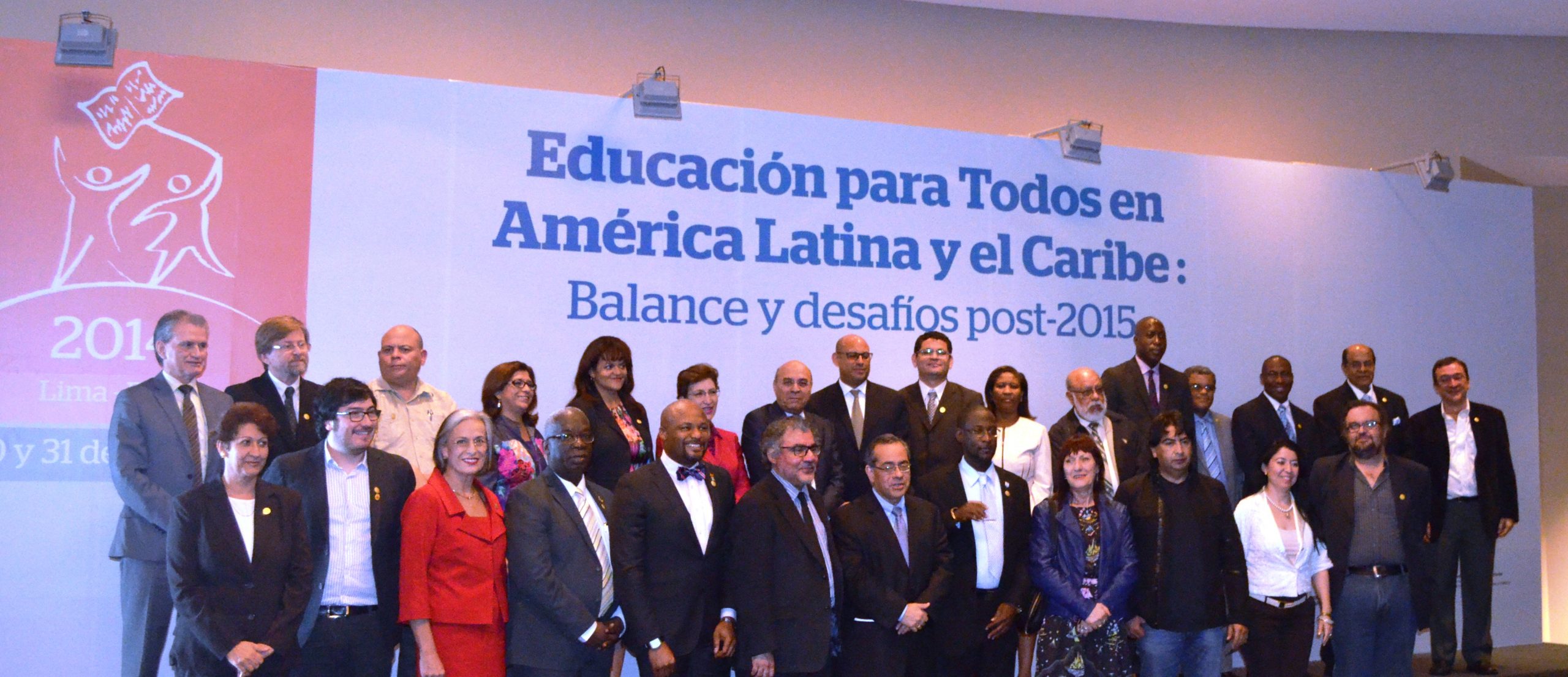Latin American Campaign for the Right to Education (CLADE), UNESCO Santiago, and the Peruvian Ministry of Education, in collaboration with Regions Refocus, convened two regional workshops to analyze and strategize towards the realization of the right to education. The first workshop of civil society actors generated a regionally-grounded analysis of the structural impediments to inclusive education for all, including social and economic inequalities, movement towards the privatization of education, and gender-based discrimination and violence. This analysis laid the foundations for the second workshop, which brought together more than fifty government representatives from the region to establish strategic priorities ahead of the 2015 World Education Forum in Seoul, South Korea.
Participants collectively identified three key priorities for the realization of inclusive and equitable education: a) addressing exclusion, discrimination, disparities, and inequalities, b) strengthening public education systems by making states accountable as primary custodians for the equitable financing of schools and education, and c) including a specific target for teachers in the Sustainable Development Goals (SDGs), acknowledging them as key actors rather than simply means of implementation. The analysis and positions developed in these meetings were consolidated in the Lima Declaration by Civil Society and the Lima Statement by Government, which provided a unifying framework for advocacy in the lead up to the 2015 World Education Forum.








